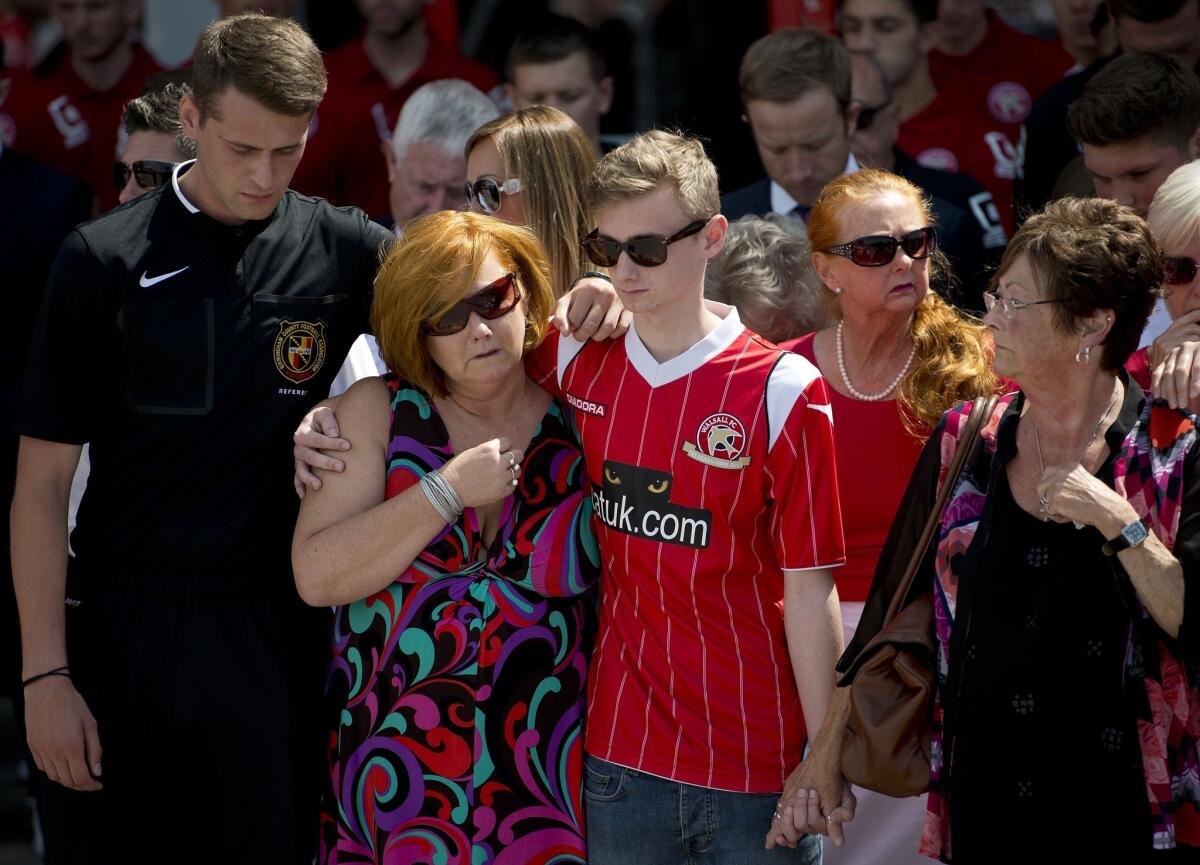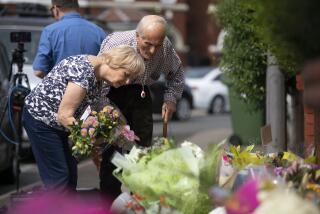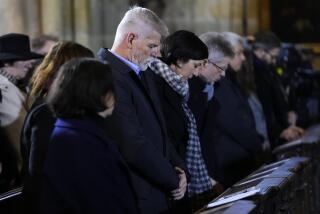Britons and Tunisians pause to honor victims of beach resort attack

Owen Richards, center, who lost a brother, uncle and grandfather in the Tunisia attacks, observes a minute’s silence with his mother Suzy Evans, second from the left, outside Walsall Football Club in central England.
- Share via
Reporting from London — People around Britain paused in streets and workplaces, in churches and mosques, in railway stations and at the Wimbledon tennis tournament Friday to honor the victims of an Islamic extremist’s rampage at a Tunisian beach resort.
Flags were lowered to half-staff at Buckingham Palace and government buildings to remember those killed in the attack. Thirty of the 38 dead were British tourists, the youngest a 19-year-old university student and the oldest an 80-year-old retired scientist.
Queen Elizabeth II and British Prime Minister David Cameron were among those who observed a minute’s silence at noon Friday, a week after the attack.
Mourners paused outside the stadium of Walsall Football Club in central England, where supporters have left flowers and team flags in honor of three fans — all members of the same family — who died.
Crowds held a moment of silence late Thursday in Tunisia’s capital. People from many religions joined as Muslims broke their Ramadan fast. A ceremony was also planned for Friday at the Imperial Marhaba hotel in the Mediterranean resort town of Sousse, where the attack happened.
The gunman was killed by police and Islamic State claimed responsibility for the massacre, a blow to Tunisia’s budding democracy and tourism industry.
The first inquest for a British victim of the attacks opened Friday at a London court. A police officer told a coroner that 59-year-old Stephen Mellor of Bodmin in southwest England died from gunshot wounds to the chest and abdomen.
Inquests are held in Britain to determine the facts in cases of violent or unexplained death.
More to Read
Sign up for Essential California
The most important California stories and recommendations in your inbox every morning.
You may occasionally receive promotional content from the Los Angeles Times.












